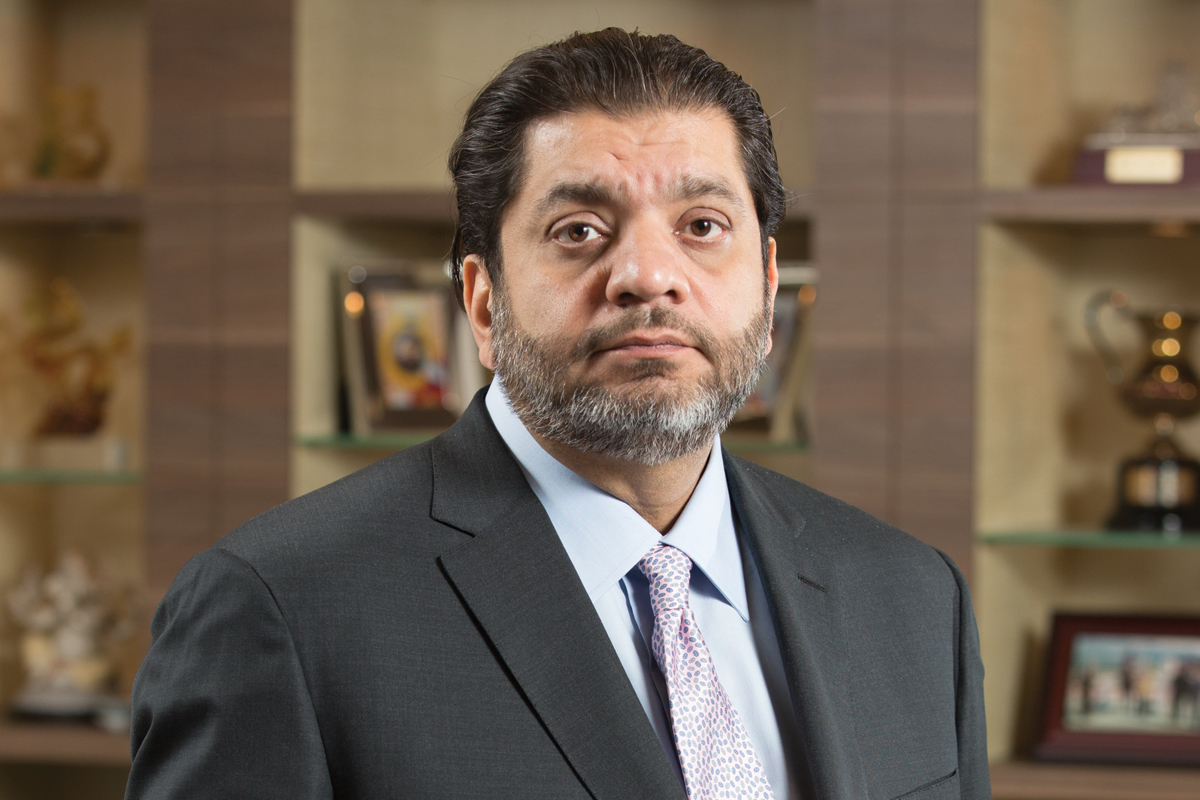Ranjan Mahtani joined in 1984. “I’m not that old,” he protests, “but I’ve been with the company for a long time.” Rising through the ranks to become CEO and Chairman, he is passionate about making Epic into an apparel manufacturer unlike any other.
In 2005, Ranjan and his management team reorganised Epic’s business model from a trading company into a manufacturing one. “Even before we built the first factory,” he says, “we had a clear vision that, number one, we wanted to be in the right countries, and number two, we wanted to be forward-thinking with our manufacturing. From the first day, we branded ourselves as a world-class manufacturer, and that’s how we started our journey.”

Ranjan is determined to do things differently from other manufacturers in the industry, and is actively trying to cultivate a mindset among his workers that goes beyond the garment. “We may be making apparel, but we want to try to be forward-thinking in our process: try to make it like a pharmaceutical firm and not think garments, to think like an automobile firm. We want to build a process so that we can drive efficiency within the organisation.”
Aiding the drive for efficiency is Epic’s transparency, one of the company’s foundations. “Through our transparency,” Ranjan explains, “we have become more proactive, and become a solutions-driven company.” This involves expanding beyond manufacturing and, since the restructure, Epic has made its goal of being a one-stop shop clear to its customers.
“Not only do we want to provide a steady manufacturing base with cost competitiveness,” Ranjan says, “but we will also bring anything else that is required to the table. Our game is an intensive one: to try and understand the customer, and try to service from all angles.” Evidently, the company is succeeding in its efforts, and he notes that rates of growth have been consistently above 20% since 2006.
Ranjan is a big believer in turning challenge into opportunity. “In this business, every day we have a new challenge: one day it’s fabric, then it’s labour cost, and next it’s a change in the retail environment. We try to look at this challenge not as pressure or a problem, but with a view of overcoming it. When we overcome the challenge, it opens doors and becomes an opportunity for us. So we love the competition, we love the changing retail environment, and we try to keep evolving and adapting as a company. We are a tremendously resilient company that keeps evolving with the market.”
“We connect with everybody in our company: with every operator, every tailor who’s sitting at a machine.”
Ranjan identifies sustainability as the first of three significant aspects that set Epic apart from its competitors. He tells The CEO Magazine, “we are driving sustainability efforts in the countries we operate out of.” Second is the constant improvement and automation of processes. “We continue to upgrade and evolve at an aggressive pace.” Finally, “we connect with everybody in our company: with every operator, every tailor who’s sitting at a machine.” This kind of personal connection is augmented by the training academies built by the company to encourage a healthy culture among its workers.
A solid commitment to teamwork categorises Epic’s relationship with its suppliers. “We consider that, whether it’s a customer or a supplier, we are part of one team. We engage with many industry specialists on the software side; similarly, on the textiles side, we work with our suppliers very closely. We collaborate with them.” Ranjan makes a point of signing long-term deals with suppliers, to prevent the relationships from becoming too transactional.
In response to changes in the apparel industry, including the rise of ecommerce models and shifting consumer demands, driven in large part by the millennial market, Ranjan is determined to keep up. “We want to evolve to become a solutions-driven company for our retail brands,” he says. “We are focused on creating innovation-, performance- and comfort-driven solutions for our retailers, where we bring new products to the table.” Clear about what he wants from his team, Ranjan has one message that he makes sure to deliver every day, telling them: “What you did yesterday is not good enough today. We must do better than what we did yesterday. This is how we drive improvement.”


